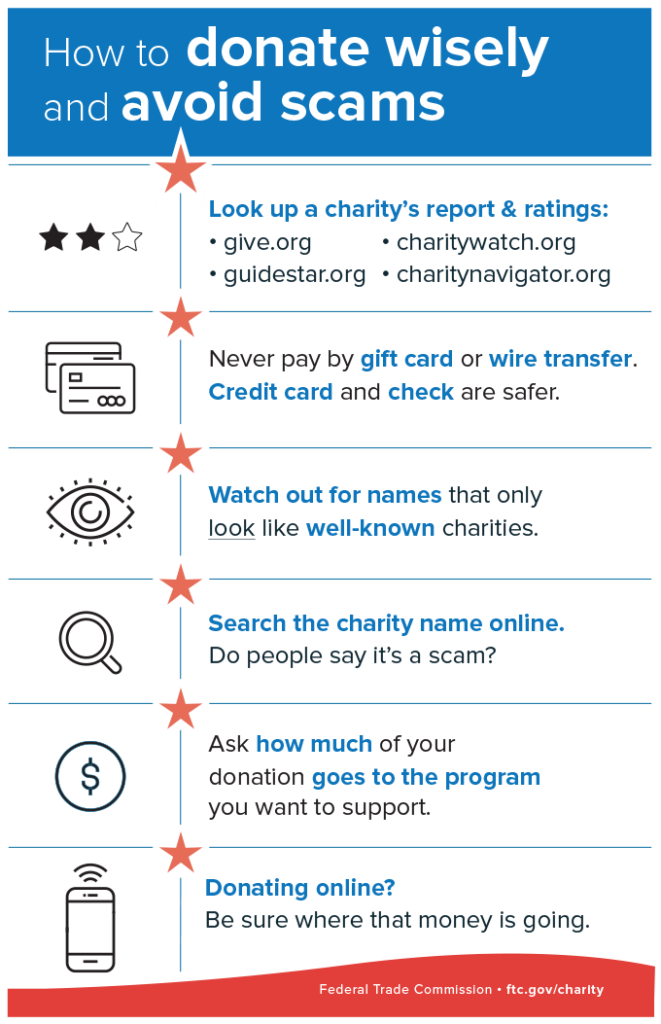October 21-25, 2019
Charity fraud is, unfortunately, all too common. But don’t be discouraged. You can still make your charitable giving count by following the tips below to identify the bad actors from the good:
Tip #1: Do your Research
Visit websites like Charity Navigator or the Better Business Bureau Charity Information for Donors to learn more about a particular charity. If you receive a call asking for donations, ask questions like:
“Who are you and what is the name of this charity?”
“Where is the charity located?”
“How would my donation be used?”
“Are you a paid fundraiser?”
Tip #2: Learn about Paid Fundraisers
Some charities hire paid fundraising companies to help them solicit donations. In Vermont, any charity using a paid fundraiser must register with the Vermont Attorney General’s Office, and report how much of the donations received go to the fundraiser. Visit the Attorney General’s website to learn more and access donation information, or call the Consumer Assistance Program: 800-649-2424
Tip #3: Spot the Scam
Scammers use phone calls, mailings, door-to-door solicitations, and emails to trick people into “donating” to their “cause.”

- Phone calls: Scammers will pressure you to give money right away. They might ask you to send cash or wire money, and they will not give many details about what the donation is for.
- Mailings: You might receive a letter in the mail thanking you for a pledge you never made. This is a signal that the mailer is a scam. If you receive a mailer that you’re unsure about, do your homework by searching online, or call the Consumer Assistance Program.
- Door-to-door: When someone knocks on your door to ask for a donation, the pressure is on. Remember that you are under no obligation to give. Ask for more information and do your research. If you cannot get legitimate information about the charity, odds are it is a scam.
- Emails: Think before you click! Phishing emails look similar to messages from legitimate sources and use email addresses that seem familiar. Be cautious with suspicious emails and call a charity directly if you have questions. Don’t use a phone number on the suspicious email; look it up separately.
Some common charity scams in Vermont include:
- Pastor imposter scams: a scammer posing as a local religious leader asks you to donate to a cause using gift cards via email.
- Fire or police organization imposter scams: a scammer calls asking for donations to a local or national first responder organization. If you get a suspicious solicitation, hang up the phone and call your local firefighter or police station to get more information.
- Disaster scams: Scammers ask you to donate to a charity that provides relief for people who have experience natural disasters, except the charity doesn’t exist or they are impersonating a real charity. Always do your research before giving money or personal information.
Tip #4: Call the Consumer Assistance Program!
If you feel unsure about a charity solicitation or believe you have donated to a scam, call the Consumer Assistance Program! The Consumer Assistance Program can help identify warning signs, provide paid fundraiser information, and help you recover from scams.
Consumer Assistance Program: ago.vermont.gov/cap or 800-649-2424
